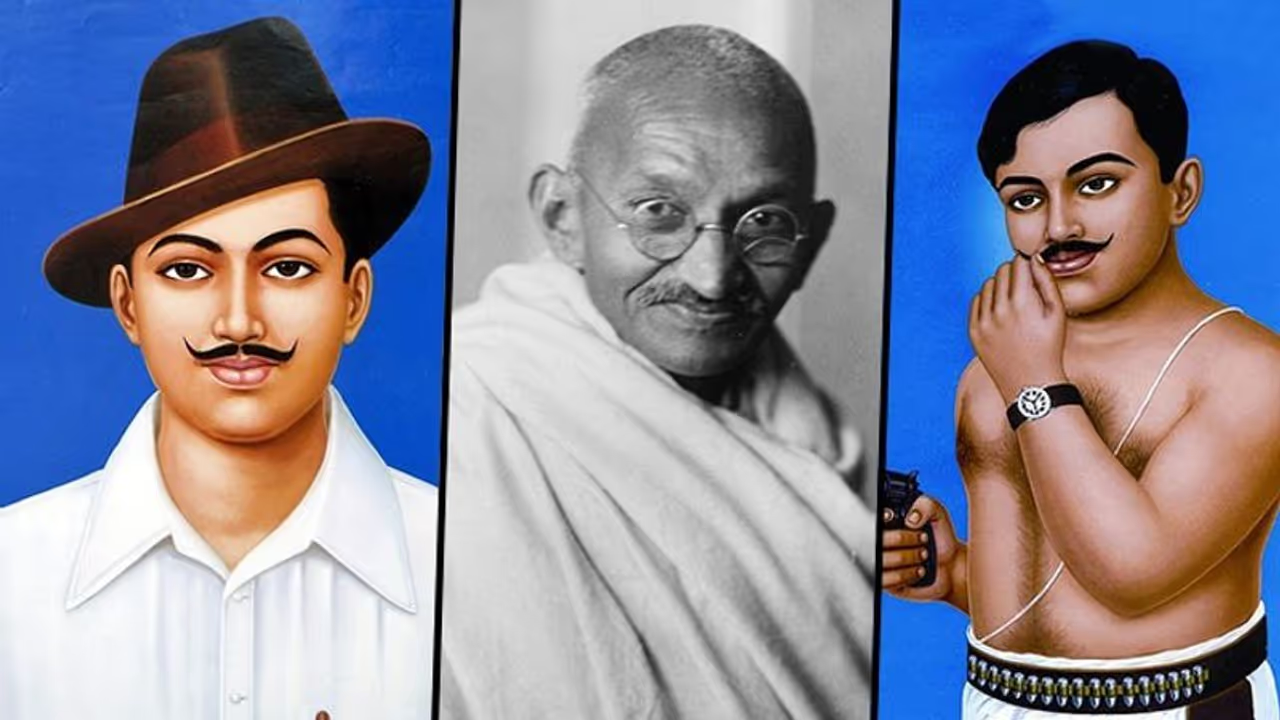On 75th Independence Day, from Shaheed Bhagat Singh to Mahatma Gandhi, let us remember some of the freedom fighters who were an integral part of India's struggle and their inspirational slogans.
As India is ready to celebrate 75th Independence Day on August 15, let's take a look at inspirational slogan by our bravehearts freedom fighters who were an integral part of the struggle.

1."Inquilab Zindabad" - Shaheed Bhagat Singh
Shaheed Bhagat Singh was born in Banga, Punjab, on September 28, 1907. He is regarded as one of the most influential revolutionaries of the Indian national struggle. He interacted with several revolutionary groups and significantly contributed to the Indian national struggle.
Maulana Hasrat Mohanib, an Indian independence fighter and urdu poet, is credited with coining this phrase. However, Bhagat Singh, one of the most important Indian revolutionaries, popularised it. At the age of 23, Bhagat Singh gave his life in service to the country. "Inquilab Zindabad" is Urdu for "Long Live the Revolution." This slogan evolved to become one of the freedom movement's rallying cries. It motivated a number youngsters to take part in the battle for independence. The slogan instilled a sense of patriotism and pro-independence fervour.
Also Read | Har Ghar Tiranga: Want to hoist tricolour at home? Here are 5 FAQs answered
2. "Karo Ya Maro" – Mahatma Gandhi
Mahatma Gandhi was born in Porbandar, Gujarat, on October 2, 1869. In 1890, after returning to India as a lawyer from England, he devoted the rest of his life to the cause of Indian independence. The Champaran Movement, the Kheda Movement, the Khilafat Movement, the Naam Movement, and the Quit India Movement were some of the few campaigns for freedom that Mahatma Gandhi spearheaded.
Mahatma Gandhi coined the phrase "Do or Die" during the All India Congress Committee (AICC) meeting on August 7, 1942. The Quit India resolution was approved with overwhelming consensus the very following day, on August 8, 1942. It sought the immediate end of British authority in India. 'Mere Jail Jaane Se Kuch Nahi Hoga; Karo Ya Maro' (Nothing will happen if I go to jail; either we free India or we perish in the struggle) was how Mahatma Gandhi addressed the Congress delegates.
3. "Ab bhi jiska khoon khaula nahi wo khoon nahi pani hai, jo desh ke kaam na aye woh bekaar jawani hai" – Chandrasekhar Azad
This radical slogan came from Chandrasekhar Azad. By using his own self-adopted name, 'Azad', he gained popularity with the populace. Azad was involved in violent movements and the fight for independence at a young age. Azad promised to free the homeland from British control. Azad, who was determined to never be caught by the British, inspired the youth with his powerful chants. This catchphrase sparked a desire to defend the nation.
Also Read | India@75: Homi Bhabha to APJ Abdul Kalam, 5 scientists who made India proud
4. "Sarfaroshi ki tamanna ab .. hamare dil mein hai, dekhna hai zor kitna baju-e-khatil mein hai" – Ramprasad Bismil
These words by Ramprasad Bismil were taken from his poetry on national pride. Later, it was adopted as a catchphrase to protest against British rule in India. This catchphrase exhorted the countrymen to combat British imperialism by fighting for their independence. Bismil was one of the most talented patriotic authors of his generation.
5. "Tum Mujhe Khoon Do, Mai Tumhe Azadi Dunga" – Subhash Chandra Bose
Netaji Subhash Chandra Bose was born on January 23, 1897 in Cuttack, Odisha. He was a key participant in India's war for independence. He established the 'Azad Hind Fauz' of Indian National Army during World War II with assistance from Japan in order to uproot the British from the country.
Subhash Chandra Bose gave the slogan 'Tum Mujhe Khoon Do, Mai Tumhe Azadi Dunga' (You give me blood, I will give you freedom) while exhorting India's youth to take part in the liberation movement using any means they saw fit. The slogan moved an entire nation and motivated them to take on the might of the British.
